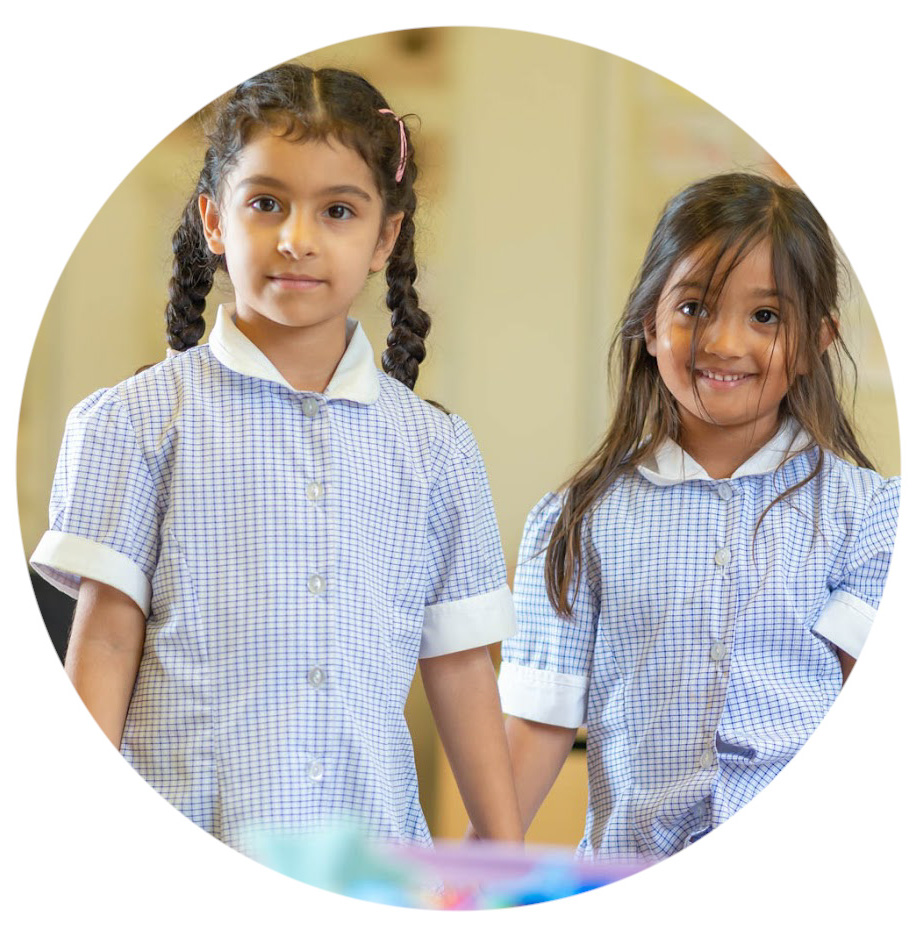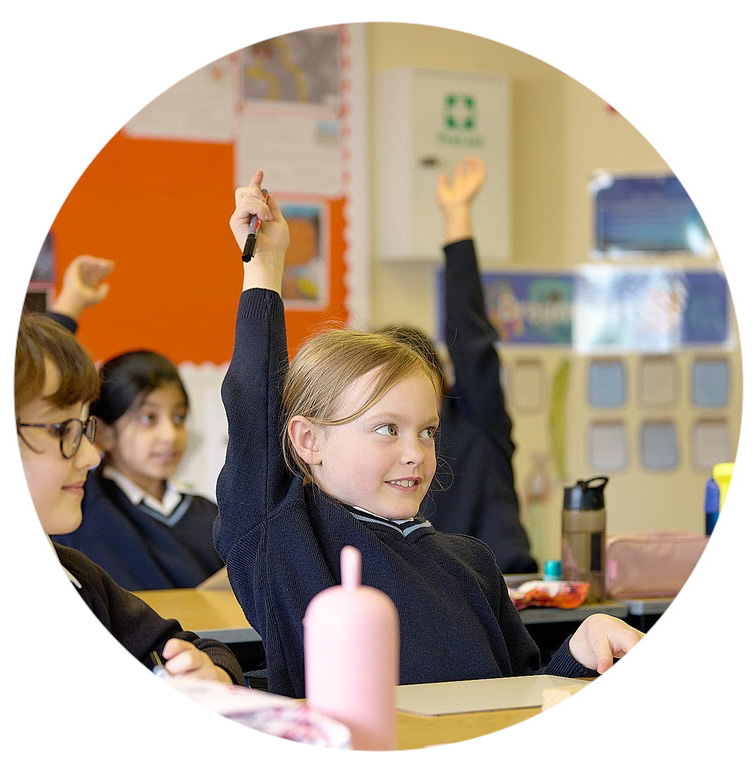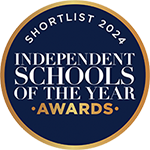Curriculum
Cornerstones Overview
From EYFS to Primary (Year 1 to Year 5) we provide a broad and balanced curriculum based around the Cornerstones Curriculum, a nationally recognised approach for delivering outstanding learning opportunities for children.
The Cornerstones Curriculum is a creative and thematic approach to learning that is mapped to the 2014 Primary National Curriculum to ensure comprehensive coverage of national expectations. It is based on a child-centred pedagogy called The Four Cornerstones and is delivered through Imaginative Learning Projects (ILPs) which provide a rich menu of exciting and motivating learning activities that make creative links between all aspects of children’s learning.
We believe children learn better when they are encouraged to use their imagination and apply their learning to engaging contexts. Our curriculum provides many learning challenges throughout the academic year that require children to solve problems, apply themselves creatively and express their knowledge and understanding effectively.
Cornerstones also provide a rigorous essential skills framework that outlines the end of year expectations in all subjects. These essential skills are tied to activities and are age-related so that staff can track children’s progress and identify their individual learning needs.
Primary (Year 1 - Year 5)
Learning in the Junior Department is based around the Cornerstones curriculum which is designed to be engaging and interactive.
National Curriculum content is covered, but we believe that a school should add more to a child’s education. Our pupils receive lessons in ballet, learn to play a musical instrument and are taught touch-typing, to broaden their skills and opportunities.
Pupils in Years 1-5 are taught mainly by their class teacher. Some subjects will be taught by different teachers, to give pupils a wider experience of teaching styles and expertise.
In the summer term, girls in Year 5 also benefit from lessons in the Senior School to help to prepare them for the move for Year 6. The curriculum guide for Years 1 to 6, and Early Years can be downloaded below.


EYFS Curriculum
Girls can join us from their third birthday, transitioning from nursery into our Foundation Class, and move to Reception in September of the year they turn five.
Our play-based learning combines with school activities like PE, ballet, and assemblies. A three-year rolling programme ensures a rich curriculum with topics such as:
- Me and My Community: Building friendships and exploring school life.
- Once Upon a Time: Discovering and acting out stories.
- Marvellous Machines: Exploring technology and creating machines.
- Puppets and Pop-Ups: Making puppets and telling stories.
- Winter Wonderland: Investigating winter weather and snowy habitats.
This approach provides a fun and engaging start to your daughter’s education.
Beyond the Curriculum
We believe that it is important to offer opportunities to develop and extend learning outside the classroom, so that pupils experience a rich and varied range of learning experiences. To help our girls achieve this, we learn beyond the curriculum through:
Junior
We offer a wide range of clubs and activities, giving every pupil the chance to try something new, develop hobbies, and enjoy unique learning experiences. Clubs run at lunchtime or after school and are led by our staff or specialist coaches. Popular options include Athletics, Art, Ballet, Choir, Gardening, Tae Kwon Do, and Tennis.
Leadership opportunities begin as soon as a girl joins us, helping her build confidence, teamwork, and problem-solving skills. From classroom jobs in EYFS to House Captain roles in Years 3-5, every girl takes on responsibilities that prepare her to lead. Year 5 students take on additional roles, such as Librarian, Office Assistant, or Computing Monitor, fostering their independence.
Trips and Residentials
Every learning project includes a ‘memorable experience,’ such as a special activity or trip to enrich understanding. Recent trips include Twycross Zoo, Warwick Castle, and Sudbury Hall, while Year 3 girls experience a School Sleepover. Residential trips for Years 4 and 5 further develop independence and teamwork.
Alongside these, our extensive extra-curricular programme ensures plenty of opportunities for learning, exploration, and growth beyond the classroom.
Early Years
Activities, Themed Days, and Outdoor Learning
In EYFS, girls are fully integrated into school life, participating in PE lessons, assemblies, music lessons, and school performances. Reception Class girls also enjoy weekly ballet lessons with Mrs. Loomes from the Karen Loomes Dance Academy, offering a chance to try ballet and even take an initial examination.
We celebrate regular themed days to raise awareness of cultural events and provide exciting alternatives to trips. Recent themes include St. George’s Day, Chinese New Year, Diwali, Spring Celebration, and Seaside Day.
Every week, our EYFS girls explore the Spinney, our woodland area, where outdoor education fosters resilience, independence, and teamwork. Activities include minibeast hunting, tree climbing, den building, and enjoying hot chocolate—all while wearing waterproof suits and wellies to embrace any weather!
Trips and Memorable Experiences
Every learning project begins with a 'memorable experience,' such as a special activity or trip, to spark curiosity and deepen understanding. Recent trips include Rockingham Castle and local nature walks for Foundation Class, and visits to West Lodge Farm and Foxton Locks for Reception.
Learning Support
Our girls benefit from small class sizes and dedicated classroom support in each Year. For those girls who require more support, we also have a dedicated School SENCO who provides support to those girls who require it.
We work closely with parents to ensure the support provided is appropriate and expertly tailored to the needs of your daughter.
SEND Support
We have a dedicated Special Education Needs and Disabilities (SEND) Coordinator, Mrs Pat Oaten, who works with those girls who need additional support in any area of:
- Cognition and learning
- Communication and interaction
- Social, emotional and mental health difficulties
- Sensory and/or physical needs
We use a variety of data tools to ensure early identification of students with SEND and to enable us to put the correct support package in place.
Regular meetings are held between the SEND Coordinator and the wider Pastoral Team to discuss progress and support. Parents are able to contact the SEND Coordinator at any time or to arrange a meeting to discuss their daughter's needs.

